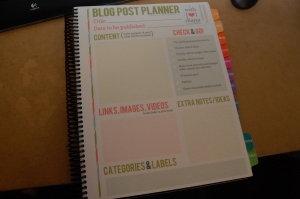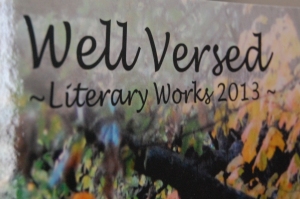The first topic covered at ORAcon2013 was worldbuilding. Here are the basic bullet point notes that I took:
- People always interact with their settings in a way unique to themselves. So, an OCD character would notice things out of place, a photographer would notice any pictures, a purple heart on display might catch the attention of a military person or a police officer, signs of a battered wife/child/husband might be recognized by a counselor, etc. Know who your characters are and when writing from their point of view, write what they would see.
- The setting becomes a character too. I found this statement especially well worded. I have never thought about my world as another character, or in a sense, even the different cultures in my novels could be considered different characters.
- Create and know the norms for the culture and how the people live.
Research
- Do Lots of Research. Use original sources such as mythology, history, etc. Use academic writings, google, wiki, and the internet in general (be careful! double check your facts!)
- Interview!! Get real people to answer your questions for you about how hospitals work or how police stations run or how travel works in the country you are writing. These details will throw off any reader that knows better.
- Research Vacations. Well, this one is obviously a little more difficult if you don’t have the funds, but it would be a good thing to do if you can.
- Read Real Life Accounts.
Setting Details
- Specific details lend authenticity. Little details and unique specifics allow a quicker pace but still creates a good setting. There is no need to go into long bouts of irrelevent detail.
- A few well-chosen, distinctive details go a long way. Make sure details are pertinent to your character’s point of view. Different characters should notice different things.
- Terrain/Geography can add setting detail, be an obstacle, be a symbol or shape your entire world. Use description of terrain/geography wisely.
Sample questions to consider when wondering if your world is fully built
- Give AT LEAST three details that are particular and distinctive to your world: sight, sound, smells?
- Can you identify the most powerful detail of your world for each character’s POV?
- What is/has/will go wrong in this world?
- Who is the most outrageous character?
- What is the class system?
Last thoughts
- If your POV character doesn’t see, touch, or feel it, should it be described in your book?
- It’s about the expectations you’ve built for the reader. Don’t build your character in a certain way, say as a smart alec, and then have some scene where they are super respectful with no explanation.
- Write a “Series Bible” and a “Character Bible” where you lay your ground rules, limitations, and basic descriptions of culture and people.
- Don’t answer all the questions in the first book of a series, but don’t leave everything up in the air. The reader needs to want more, but be satisfied at the same time. This reminds me of chocolate or cheesecake.
- Your characters should not be surprised by the world- other than the character who might be a stranger in the world.
- If any detail or scene pulls the reader away from the story or confuses the reader unnecessarily, leave it out!
Here are some articles that I’ve found dealing with worldbuilding that are extremely helpful:
http://www.sfwa.org/2009/08/fantasy-worldbuilding-questions/
http://io9.com/7-deadly-sins-of-worldbuilding-998817537
http://terribleminds.com/ramble/2013/09/17/25-things-you-should-know-about-worldbuilding/







